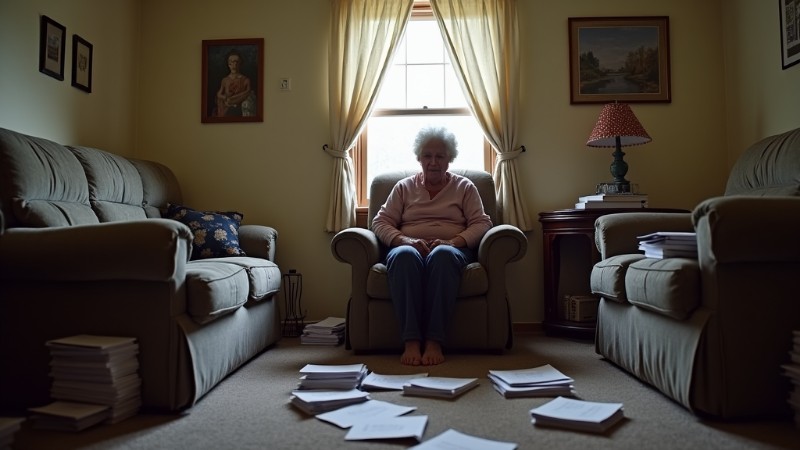Hospice volunteering is a deeply compassionate way to serve individuals navigating the challenges of serious illness or approaching the end of life. Volunteers form an essential part of the hospice care team, offering emotional, social, and practical support that complements the work of medical professionals. Whether it’s sitting with patients, supporting caregivers, or assisting with administrative tasks, their contributions ensure patients receive care with dignity and comfort.
Volunteers bring humanity to hospice care by forming meaningful connections and providing invaluable support during a family’s most vulnerable moments. Beyond assisting patients, they also ease the burden on caregivers, allowing families to focus on creating cherished memories with their loved ones.
Key Takeaways
Hospice volunteering is a compassionate way to serve individuals navigating serious illness or end-of-life challenges by providing emotional, social, and practical support.
- Volunteers form meaningful connections with patients, easing feelings of loneliness and fear during the end-of-life experience.
- They also ease the burden on caregivers, allowing families to focus on creating cherished memories with their loved ones.
- Hospice volunteers are needed in various roles, including one-on-one companionship, caregiver relief, and administrative support.
Why hospice volunteering is vital
Volunteers play a crucial role in end-of-life care, offering support where clinical teams may not be able to. They serve as emotional anchors for both patients and families, providing comfort through simple acts of kindness and empathy. These connections help ease the challenges of the end-of-life experience, alleviating feelings of fear and loneliness.
Supporting patients through connection
Volunteers make a significant impact by connecting with patients personally. Many in hospice care face isolation due to their condition or the stigma surrounding terminal illness. Volunteers offer companionship, share stories, or engage in activities like reading or playing music to alleviate this loneliness.
For patients, having someone to talk to can be life-changing. Volunteers listen to life stories, helping patients find peace and closure, and assist with creating memory projects like scrapbooks or letters for loved ones, leaving behind lasting legacies.
Easing the burden on caregivers
Family caregivers often face emotional and physical exhaustion from constant support. Hospice volunteers offer respite by handling routine tasks, allowing caregivers to rest and recharge.
Support activities like running errands, preparing meals, or staying with the patient give caregivers peace of mind, knowing their loved one is cared for. One caregiver shared that the help of hospice volunteers was essential in continuing to care for her mother, highlighting the invaluable kindness they received.
Volunteers needed for patient support
Hospice of Michigan, a leading nonprofit organization, is actively seeking volunteers to support patients and families in the West Michigan area. Volunteers are needed in locations ranging from White Cloud and Stanwood in the south to Evart and Mt. Pleasant in the north, and everywhere in between. The organization is particularly looking for individuals who can offer one-on-one companionship to patients or provide caregiver relief.
Lauren Becker-Barkman, the volunteer program manager at Hospice of Michigan, emphasized the importance of community involvement, noting that the team may be small but mighty. She expressed a desire for individuals who can provide one-on-one companionship to clients or offer caregiver relief.
The organization is seeking volunteers with pets, including dogs, cats, and birds, for patient visits. Pets don’t need to be therapy or service animals but will undergo an assessment to ensure they are suitable. Volunteer commitments typically involve one-hour visits weekly, with flexibility based on the needs of both the patient and volunteer. Volunteers can also contribute specialized skills, such as providing haircuts or massages to patients.
HOM’s volunteers play a vital role in delivering compassionate care to patients in their local communities, helping the organization provide the highest quality care to families facing life-limiting illnesses.
How to get Involved
To become a volunteer with Hospice of Michigan, individuals must complete orientation, background checks, and fingerprinting. Volunteers must also be 18 years or older and must wait at least one year after experiencing a recent loss to ensure they have time to process their grief before taking on the role.
Training, which is typically 4 to 4.5 hours long, can be conducted either in person or online, ensuring that volunteers are fully prepared to provide the best possible support to patients and their families.
For those interested in volunteering, Hospice of Michigan encourages people to connect with their community and offer their time, whether through companionship, professional services, or administrative support. Lauren Becker-Barkman emphasizes that every volunteer makes a significant impact on the organization and touches the lives of the individuals and families served. Volunteers can also submit an online application by visiting their website.
Training and preparation for volunteers
Becoming a hospice volunteer requires more than just good intentions—it demands careful preparation and training to ensure volunteers are ready to provide meaningful support.
What hospice training covers
Hospice volunteer training equips individuals with skills to manage practical and emotional aspects of end-of-life care, emphasizing physical, emotional, and spiritual support.
The training focuses on communication and active listening, building trust and support with patients and families. Volunteers also learn to address patients’ unique needs, providing personalized care. Grief and loss are covered, helping volunteers handle emotional challenges and establish boundaries. Cultural sensitivity is emphasized to ensure non-judgmental, respectful care.
Screening and matching
Organizations dedicated to hospice care carefully select and match volunteers to suitable roles. To evaluate their motivations, strengths, and emotional readiness, prospective volunteers typically go through interviews. In addition, background checks are often conducted to ensure the safety and well-being of patients.
Once trained, volunteers are matched with tasks that align with their skills and interests. For example, those who excel at an organization may assist with administrative duties, while others who thrive in one-on-one interactions may focus on direct patient care.
The many roles of hospice volunteers
Contributing in various ways, hospice volunteers play an important role in both direct patient care and behind-the-scenes support. Their involvement is essential to the success of hospice programs, enhancing the care and comfort of patients and families alike.
Direct patient care: Volunteers providing direct patient care offer companionship and emotional support, often through activities like reading aloud, playing music, or simply sitting with patients during difficult moments. These interactions are especially meaningful for those without family nearby.
Additionally, volunteers may assist with non-medical tasks, such as helping patients eat or transporting them to appointments. These acts greatly enhance the patient’s comfort and quality of life.
Administrative support: Volunteers handle administrative tasks, assist with fundraising, and support community events, allowing staff to focus on patient care and ensuring smooth hospice operations.
Community outreach and fundraising: Hospice programs rely on community support through volunteers who raise awareness, organize events, and assist with thrift stores, helping generate revenue and strengthen the community.
The profound impact of hospice volunteers
The impact of hospice volunteers extends far beyond their immediate interactions with patients and families. Their presence creates ripples of kindness that uplift entire communities.
For patients: Patients often express deep gratitude for the companionship and care provided by volunteers. These connections help patients feel valued and less alone, even in their final days. Whether it’s a shared laugh or a heartfelt conversation, volunteers provide moments of comfort and peace that patients cherish.
Families: For families, the support of hospice volunteers is life-changing. By easing the burden of caregiving, volunteers allow loved ones to focus on spending meaningful time together. Families often describe volunteers as a source of strength and solace during an emotionally taxing period.
Volunteers themselves: Many hospice volunteers describe their work as profoundly rewarding. Through their service, they gain a deeper appreciation for life’s fleeting moments and the power of human connection. Volunteering often fosters personal growth, resilience, and a renewed sense of purpose.
Getting involved in hospice care provides a meaningful opportunity to support individuals and families during vulnerable moments. Through companionship, caregiver assistance, and operational help, volunteers bring comfort and compassion to those in need.
For those seeking to give back, this role fosters profound connections and a legacy of kindness. Whether offering direct care, administrative support, or community outreach, volunteers ensure patients and families receive care with dignity and love.















